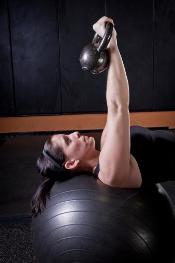The last thing you want to do at the end of a grueling workout is instantly add back all of the calories you’ve just torched — but that’s essentially what you’re doing when you reach for most sports drinks. On average, these postworkout beverages clock in at 200 calories and pack a whopping 52 grams of sugar and 400 milligrams of sodium. (To put it in perspective, you’d have to do 100 burpees, 35 minutes of uphill hiking, or 15 minutes of mountain climbing to burn off all those calories.)
The most effective postworkout drinks contain electrolytes and “quality” carbs like glucose, minus the high-fructose corn syrup and other artificial sweeteners, Tom Holland, a sports nutritionist and author of the new book “Swim, Bike, Run — Eat: The Complete Guide to Fueling Your Triathlon,” tells Yahoo Health. For the best results, replenish lost liquids within 30 minutes of a sweat session, before the metabolic window closes and the body is less able to absorb the nutrients, said Holland. Consider knocking back one of these alternative refreshers:
Coconut water
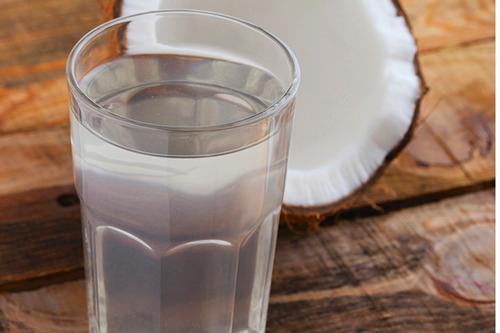
Photo by Getty Images
Sometimes called Mother Nature’s sports drink, coconut water has fewer calories and less sodium and sugar than a typical postworkout drink. It’s packed with potassium, calcium, magnesium, and electrolytes. Just be careful to steer clear of the flavored varieties and stick with “the pure stuff — unpasteurized and free of added sugars and flavorings,” suggests Holland. Jennifer Cohen, a personal trainer and author of the new book “Strong Is the New Skinny,” buys young coconuts in a supermarket or health food store. “You cut the top off and drink the water through a straw like you would on a tropical vacation,” she said. “It’s supereasy and usually of higher quality than the store-bought kind.” A 1-ounce serving of coconut water has about 70 calories and 15 grams of sugar.
Green tea
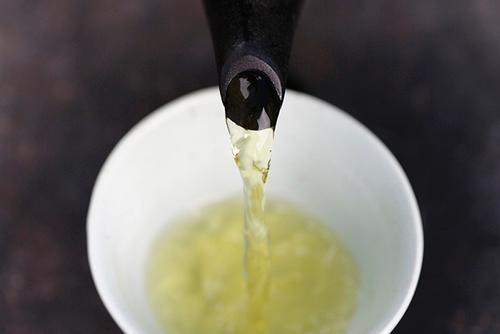
Photo by Getty Images
Green tea boasts a long list of nutrients without a single calorie. Holland, a lifelong coffee drinker, swings by his local Starbucks for an iced green tea after strenuous workouts. The health-boosting properties of green tea are well-known: It is a prime source of catechins, a type of antioxidant that has been proven to be more “powerful than vitamins C and E in halting oxidative damage (when free radicals attack biological molecules such as lipids, proteins, and DNA) to cells in your body and appear to have other disease-fighting properties,” according to the periodical Harvard Women’s Health Watch. Green tea has also been demonstrated to lower LDL cholesterol levels and cardiovascular risk.
Fresh green juice
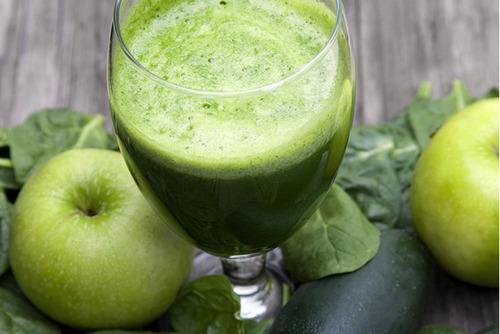
Photo by Getty Images
Freshly squeezed and cold-pressed green drinks are not just trendy, they’re also loaded with the vitamins and minerals that keep the heart and muscles going strong. Cohen generally advises clients not to “drink their calories,” but she does laud the health-affirming properties of green juices. Kale, cucumber, celery, and spinach can be blended with lemon, ginger, and apple to offset the bitterness and increase the vitamin and mineral content. Holland said green juices could help individuals meet their daily vegetable tally. “Most people won’t eat a whole plate of veggies,” he noted. Green juices, equal at least two servings of fruits and vegetables in a 14-ounce bottle. Kale, the go-to ingredient in green juices, is full of beta carotene, calcium, and vitamins K and C. Spinach, another juice favorite, is a good source of iron, folic acid, protein, omega-3 fatty acids, and vitamins A, C, E, K, and B6.
Chocolate milk
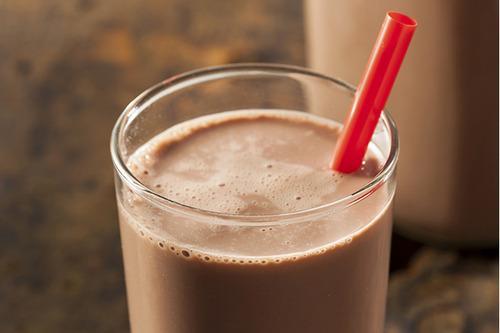
Photo by Getty Images
Yes, you read that correctly. Almost a decade ago, Joel Stager, an exercise physiologist at Indiana University, shocked the exercise community when he touted low-fat chocolate milk as a superfuel for tired muscles. Holland endorses its efficacy as a recovery drink. “It’s the perfect ratio of carbs and protein,” he said. “The protein helps rebuild muscles after a hard workout.” Before you stock the fridge with your favorite childhood brand, consider an organic brand made from cows that have not been treated with hormones and antibiotics. And though no brand of chocolate milk is ultra-low in calories, by timing your indulgence correctly, you can make sure the calories aren’t empty ones.
Cherry juice
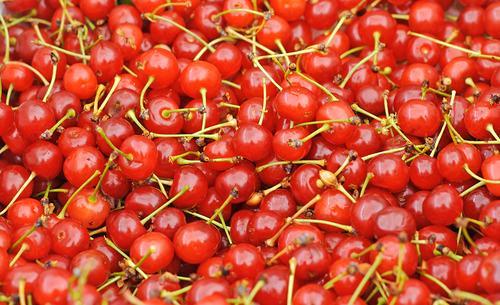
Photo by Getty Images
Cherries are the perfect cocktail garnish — and thirst quencher. Cohen praises the nutritional value of tart cherries, which contain high levels of antioxidants, vitamin A, and potassium. Tart cherries — not the sweet Bing variety — come with other health benefits, too: Studies show that they ease postworkout soreness, fight inflammation, and improve the length and quality of sleep (thanks to the fruit’s natural melatonin). According to researchers at Oregon Health & Science University, “tart cherry juice may be a safer way to treat muscle pain and inflammation than over-the-counter pain relievers such as ibuprofen.” Cohen adds a handful of frozen cherries to a glass of water or dilutes pure cherry juice with water to lower the amount of sugar per serving.


